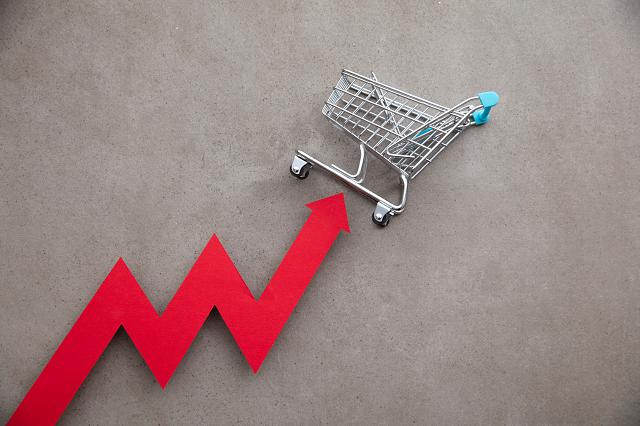Leadership Strategy Ecommerce Brands Raised Money During The Pandemic But Are At Risk Now That Consumer Spending Is Down. Gary Drenik Contributor Opinions expressed by Forbes Contributors are their own. Following New! Follow this author to stay notified about their latest stories.
Got it! Nov 2, 2022, 10:00am EDT | New! Click on the conversation bubble to join the conversation Got it! Share to Facebook Share to Twitter Share to Linkedin Inflation AdobeStock_506668349 Despite successful pandemic funding, various e-commerce brands now risk waning consumer loyalty and decreased spending. Inflationary and otherwise volatile economic environments impact both brand and customer, and as businesses increase prices to improve their bottom line, consumers shy away from name-brands and steep prices. I recently sat down with Krista Morgan, general partner of Stage female-led private equity group that acquires controlling interest in early-stage companies.
Krista’s passion for financial accessibility ensures that her portfolio brands receive sound business practices and operational expertise in order to flourish. Gary Drenik: What risks do consumer brands face in an inflationary environment? Krista Morgan: The obvious risk is that consumers become more price sensitive and choose generic options. According to a recent Prosper Insights & Analytics survey, 40% of respondents are buying generic brands as a result of price increases.
In addition to changing consumer behavior, these brands will likely face inflationary pressure in their supply chain, which will compress margins making it harder to maintain a competitive price. Prosper – Doing As a Result of Price Increases Prosper Insights & Analytics We also haven’t seen an inflationary environment in the modern ecommerce market. Ecommerce consumer brands live and breathe data, they make decisions on what to buy, how much to buy, and how to attract new customers using datasets that arguably won’t be as accurate.
MORE FOR YOU The ‘Backsies’ Billionaire: Texan Builds Second Fortune From Wreckage Of Real Estate Empire He’d Sold 5 Of The Best Alcohol Advent Calendars To Order Immediately Earnings Preview: What To Expect From Qualcomm On Wednesday Without sufficient cash resources, the simultaneous combination of a drop in sales, margin, and less accurate data could force smaller, emerging brands out of the market. Drenik: Will consumers keep supporting more expensive brands they love in a recession? Morgan: Yes and no. Middle and upper-middle market consumers have been driving the increase in new, modern brands.
It is unclear how a recessionary environment will impact these consumers. According to a recent Prosper Insights & Analytics survey, 43% of respondents stated they were striving to be more practical and realistic in their purchases, but that doesn’t mean recent trends like environmental impact, clean ingredients, and plant-based alternatives will disappear. A vegan consumer is unlikely to give up being vegan simply because plant-based dairy is more expensive than regular.
Prosper – Life Changes Last 6 Months Prosper Insights & Analytics That said, consumers are less likely to explore and experiment with niche, higher cost brands in a recession. They’ll stick with what they know and look to the brands they trust. I would argue these brands will have the opportunity to leverage this loyalty and expand their product offering, which will enable brands to drive bulk pricing with bundling and subscription models.
While we’re likely to see fewer new and emerging brands, it is possible this recession will create prosperous opportunities for more established trend-forward brands. Drenik: What advantages do emerging VC-backed brands have? Morgan: The pandemic raised the profile of e-commerce, and a lot of consumers were driven online for the first time. The growth in this sector led to a rise in VC investment in online direct-to-consumer brands.
The brands that were able to raise arguably had more support, and thus more funding to survive a downturn. On the other hand, VC-backed brands that built an unsustainable business model relying on continuous investment could have trouble rightsizing if the money stops flowing. We’re already seeing a pull-back in venture funding that is likely to impact consumer brands first and foremost.
Drenik: What metrics will investors be looking for to keep funding? Morgan: I believe the number one thing consumer and e-commerce investors will be looking at are retention metrics. Advertising costs rose in 2021 largely driven by the changes Apple made to their privacy settings. With cost of acquisition increasing, brands that have figured out how to increase the lifetime value of their customers by bringing them back again and again will prove valuable.
Other metrics I think will become more important for all companies in any kind of recessionary or inflationary environment are gross profit and inventory turnover. Consumer brands will need to demonstrate they can maintain strong margins and not be sitting on a lot of stagnant inventory to maintain their value. Drenik: Are investors more hesitant to back CPG products amidst looming recession and waning consumer loyalty? Morgan: Absolutely.
The barriers to raise will be higher and many brands will need to seek alternative options. That said, those brands that do have backing could very well consider add-on acquisitions to drive growth vs trying to acquire new customers from scratch. Drenik: Krista, thank you for your time and insights.
The residual financial implications of the pandemic have certainly affected both businesses and consumers. Understanding an investor’s perspective on fundraising just may be the key for emerging and established brands alike. Check out my website .
Gary Drenik Editorial Standards Print Reprints & Permissions.
From: forbes
URL: https://www.forbes.com/sites/garydrenik/2022/11/02/ecommerce-brands-raised-money-during-the-pandemic-but-are-at-risk-now-that-consumer-spending-is-down/



